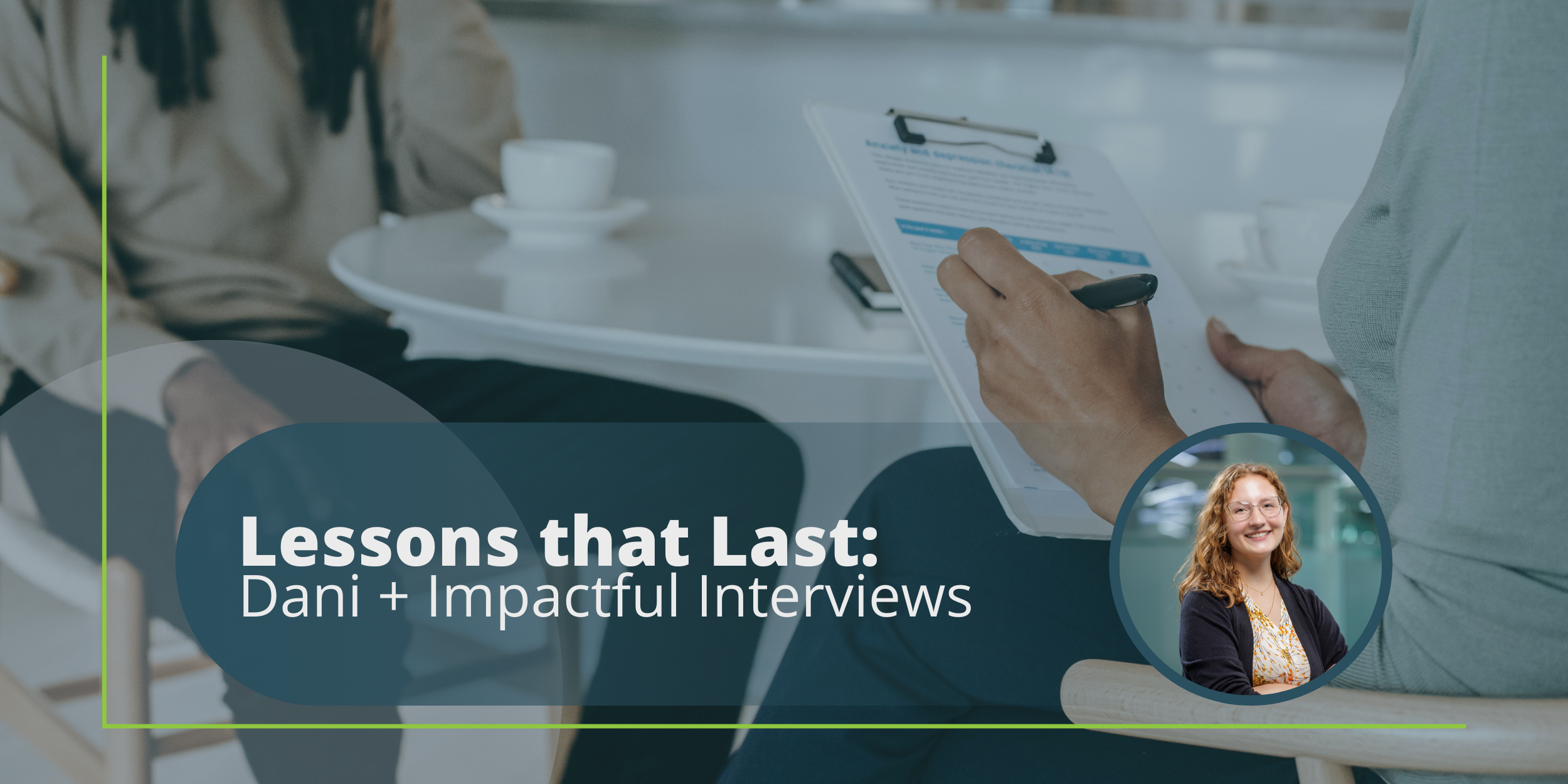Lessons that Last: How Conducting Interviews Helped Me Become a Better Listener, Facilitator, and Conversationalist
As someone who loves working with people, having a conversation is one of the most enjoyable parts of my job. But having a conversation with a stranger, especially one who has critical information for a project affecting a large organization, can feel daunting.
Over the past few months, our team worked with a local organization to bring their employees online with a new software system. We knew users were struggling, and while we had some ideas about their pain points, we needed to validate our assumptions with real experiences. To do this, we conducted a large volume of interviews across departments and different user types to pinpoint exactly what users were struggling with and how we needed to address each challenge.
I had never conducted interviews in this capacity before. Here are the key lessons I learned from the experience:
Be Genuine
“People can tell when you’re just checking boxes. Being a real person, showing curiosity, and building a connection not only made interviewees more comfortable but also opened the door to insights they may not have shared otherwise. ”
In this case, it meant connecting each person to the larger project. As much as possible, I started each interview by introducing who I was, why enFocus was involved, and how we needed their help. This helped each interview turn into a conversation. My interviewees were curious about our work, and it was fantastic to see them light up as they learned more about who we were, the kind of work we do, and why we were connecting with them in particular. They could see how their time here contributed to the project.
Ask With Intention (and Listen Between the Lines)
I learned that good questions are intentional questions. Sometimes, it meant asking the same thing in a different way to uncover a piece of missed information and other times it meant not asking a question at all if it would derail the flow of conversation.
It also meant listening between the lines.
“People often communicate some of their most important truths without saying them directly.”
As an outsider to this organization, people were cautious when disclosing information, both to protect themselves and their work. By paying attention to how they spoke around a topic, I could often infer insights they didn’t say outright.
Prepare a Script, But…
Before the interview process began, my team and I created a series of intentional questions. These served two purposes: ensuring we collected key information for the project and giving structure to each conversation. Knowing who I was speaking with and what information was most relevant helped me facilitate more focused, constructive discussions.
…Don’t Be Afraid to Improvise
I quickly realized that the most valuable moments often happened when I stepped away from my script, letting my interviewee lead the conversation. Oftentimes, people would take us directions that I didn’t expect, sharing insights that we hadn’t considered and certainly wouldn’t have captured with our relatively rigid set of questions.
This lesson in particular established the value of conversation as a dialogue rather than a one-sided interview. Learning when to let go of control opened the door to discovering what was truly important in the moment.
Bring Backup
Having a colleague join me for these interviews was invaluable. A second set of ears meant catching details I might have missed, and another perspective helped shape a more complete understanding of what was shared. Additionally, for the sake of the conversation, having another person to set the tone with and play off of their energy helped to create a casual environment where everyone was comfortable being honest and open.
Reflection
Beyond gathering essential project insights, this experience reshaped how I think about conversations and facilitation. Rather than simply responding in the moment, I learned strategies for guiding discussions while still leaving room for genuine connection. These skills will be widely applicable both personally and professionally after my Fellowship.
Beyond skills building, this experience reinforced that people are just people and, in most cases, want to get to know you and help out however they can. Each person brought a unique energy to each interview that added a human aspect to the project, which data and reports simply couldn’t. I walked away from each meeting with both the information we needed and insight into the people we were working to support, energizing me and the team to do the best work possible.

